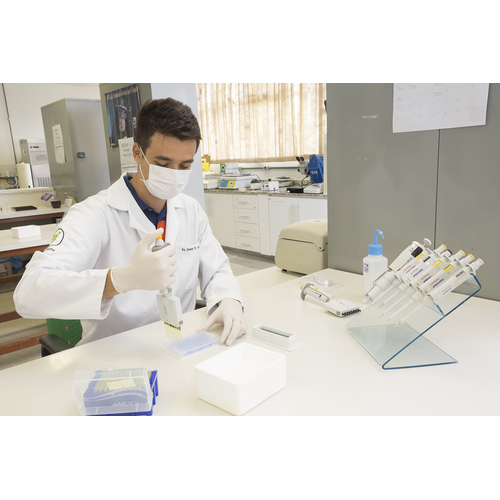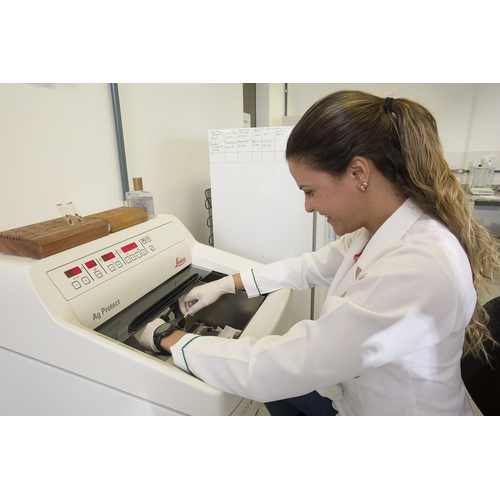Muscular Plasticity Laboratory
Lab Coordinator: Tania de Fátima Salvini, Ph.D.
The Lab research projects use animal models (rats and mice) and analyze human cells. The experimental research conducted analyzes possible skeletal muscle adaptations and nerve terminals to injuries, denervation, osteoarthritis, ligament injuries, and exercises. The lab also focuses on evaluating the effects of several physical therapy resources (e.g., exercises, electrostimulation, cryotherapy, ultrasound, and laser) on the skeletal muscle. The protocols for muscle assessment are histology (morphological analysis), immunohistochemistry, and molecular biology techniques (analysis of gene and protein expression). The lab is equipped with microscopes, centrifuges, cryostats, freezers, ovens, water purifier, and equipment for gene expression. Regarding studies with humans, research projects investigate the functional adaptation of skeletal muscle to different physical therapy resources in individuals with different conditions that cause movement disorders (e.g., osteoarthritis, diabetes, ligament injuries, CNS and peripheral injuries, shoulder impingement syndrome, fibromyalgia, and cancer).
Infrastructure: the lab uses the multi-user infrastructure (i.e., isokinetic dynamometer [Biodex System III], force platforms, electromyography, digital cameras, etc.). Research projects are funded by FAPESP, CNPq, and CAPES.
